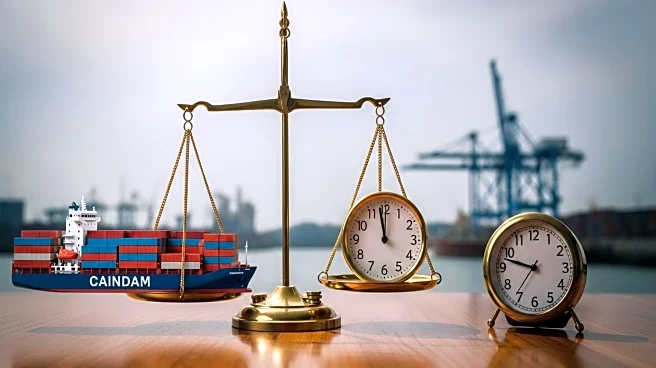What's Happening?
A court in Rotterdam has ordered container handlers, known as lashers, back to work for four days following a strike that began on October 8. The strike, which was extended indefinitely on October 10, has caused significant backlogs at the Port of Rotterdam, with 33 vessels waiting in anchorage areas. The court's decision came after a coalition of employers and businesses argued that the strike was disproportionately impacting supply chains. The union, FNV, has been demanding a 6.5% wage increase, down from an initial 7%, but employers have rejected this demand. Negotiations are set to resume, and the strike may continue if no agreement is reached by October 17.
Why It's Important?
The strike at the Port of Rotterdam highlights the ongoing labor disputes affecting global supply chains. Rotterdam is a key hub for international shipping, and disruptions here can have ripple effects on global trade. The court's intervention underscores the balance between workers' rights and economic stability. If the strike resumes, it could exacerbate delays, affecting industries reliant on timely shipments. The situation also reflects broader tensions in labor negotiations, as unions push for better wages amid rising living costs.
What's Next?
Negotiations between the union and employers are expected to continue, with the potential for further court interventions if the strike resumes. The outcome of these talks could set precedents for future labor disputes in the shipping industry. Stakeholders, including businesses and government entities, will be closely monitoring the situation, as prolonged disruptions could lead to increased pressure for legislative or policy changes regarding labor rights and economic impacts.










